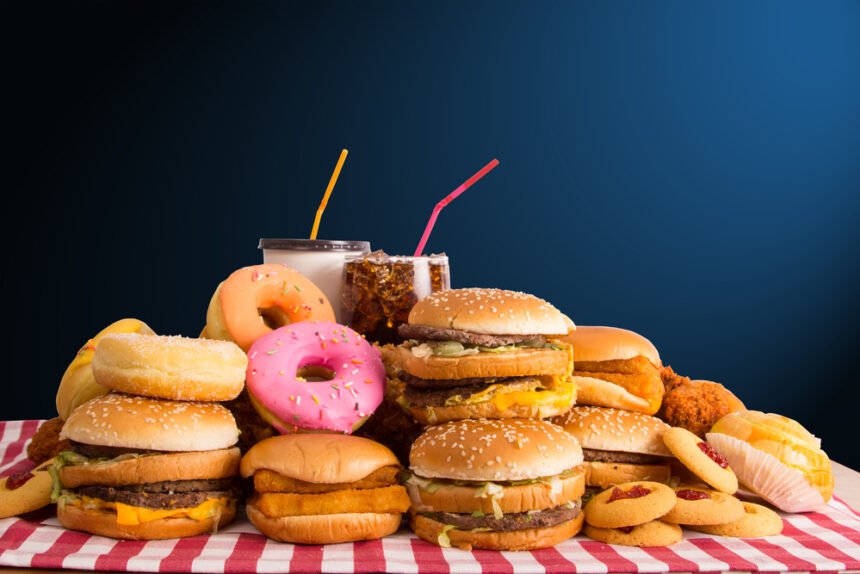Drugs and junk food have more in common than one may realize. In facts, foods high in sugar and carbs can affect the brain similarly to how drugs affect it. In turn, junk food causes someone to overeat and become addicted to certain foods. With all the myths about nutrition and health, this one is actually a grim reality for those who want to either cut back on sweets and snacks, or undergo weight loss. However, eating junk food can be a tough habit to break, if you’re used to consuming it every day. Here are seven reasons why junk food is disturbingly similar to drug addiction.
High Dopamine Intake
Sugar is notorious for releasing opioids and dopamine in the body. Dopamine is a neurotransmitter that’s responsible for the “rewarding” part of addictive behavior; it makes you feel that pleasurable “high” that addictive drugs may give you, making you want to repeat the behavior. Eating sugary foods excessively makes your brain release less natural dopamine, making you want to fuel up on artificial dopamine to make up for the loss. Just as drug addicts tend to want more of that “high” by taking more drugs, food addiction makes you want more of the “high” by having you eat more. Thus, it’s easy to lose control over food consumption.
Increased Cravings
Everyone has cravings; it’s an irresistible feeling. And although people often confuse cravings with hunger, they’re not the same thing. While hunger is caused by the body sending signals for you to replenish energy and nutrients, cravings convince you that you need to eat more than what a regular meal can offer. In other words, hunger is about satisfying the body’s need for energy, while cravings will tell you that it’s not enough – it has nothing to do with real hunger. Similar to craving things like drugs, alcohol, cigarettes, etc., junk food cravings act the same way, making you think that you’re not getting enough of it. Thus, cravings are a common symptom for any addiction, including junk food.
You Can’t Avoid It
Since sugary and salty snacks are already made available to the public, and more socially acceptable than drugs or alcohol, that makes junk food harder to avoid. It’s nice to have the willpower to not take it off the store shelf and move on, but sometimes, you can’t resist the temptation to buy it. But at the end of the day, food is a necessity – we need food to survive. Therefore, “quitting” junk food is almost unavoidable.
Too Easy To Binge-Eat
Drug addicts tend to increase the dosage of a drug (or their own prescribed medication), once they become tolerant to the effects of that drug. In other words, one pill a day may turn into two a day… or ten a day. They increase the dosage, because their brain now has fewer receptors that want more than just one dose. The same is true for junk food – one cupcake or bag of potato chips can turn into two or more of those foods. Thus, people will turn to binge-eating to try and please the few receptors in the brain that tell you that one dose or serving is not enough.
An Easy Substitute For Drugs
Cross-sensitization is a feature that’s common in many addictive substances. Sometimes, addicts will no longer get satisfaction from the drug or substance that they’re addicted to; so, they’ll “switch” from one addiction to another (which might be food). For example, a heroin addict may switch from heroin to food at some point, especially if the “new” addiction contains sugar or carbs – the dopamine-filled entity that an addict needs to get a “high” that the original addiction may not have anymore.
Vulnerability To Withdrawal
Just like with drugs, people can experience withdrawal symptoms from food. When you stop eating sugar and carbs cold turkey, you’ll experience withdrawal, as if your body can’t function without them. For example, caffeine is one of the most common (and consumed) food products to be addicted to. Let’s say that a person has consumed caffeine every single day; but when they stop drinking coffee and/or caffeinated drinks for a while, they’ll feed tired and irritable without caffeine, and get headaches. Thus, they get dependent on caffeine in order to function properly.
Compromises Overall Health
This fact is a given: junk food can compromise your health physically, mentally, etc. Junk foods tend to have harmful ingredients like sugar, refined wheat and refined oils. At the same time, they don’t provide enough healthy ingredients like fiber, protein and micronutrients. The sugar and refined carbs make you eat more than you’re supposed to. Plus, those harmful ingredients can lead to health problems like heart disease, metabolic syndrome, and type 2 diabetes. Although the “junk food is unhealthy” message is already common knowledge that’s etched in everyone’s minds, people would still find it tempting to grab as many snacks and sweets as they can, the next time they take a trip to the store or restaurant. That’s exactly what drug addicts do with drugs, is believe that they know better, but still go to drugs. Thus, food consumption can be hard to control at times.
Conclusion
In truth, food can be just as bad an addiction as drugs. Although the social consequences are less severe than drug addiction, the dangers are still there, in terms of health and wellness. Former addicts may tell you that at some point in their addictions, they would turn to junk food to satisfy cravings. So, while food addiction may not be taken as seriously as drug addiction (to where you’ll need to check in to a rehab), food consumption can still be a problem, if you don’t practice willpower, and every once in a while, say “no” to the bag of chips or box of donuts. Without willpower, you’ll be a slave to food. However, there is good news: When you train your taste buds to accept less sugar and less carbs, you’ll work your way towards limiting your food intake to just the regular three meals a day. In other words, eating is essential, but do it in moderation. Beatrice Daniels is a professional copywriter who specializes in writing and marketing; and she writes compelling articles on Phdkingdom and Nextcoursework. Many of her articles talk about her personal experiences helping youth writers perfect their craft, and helping companies improve their marketing strategies.










